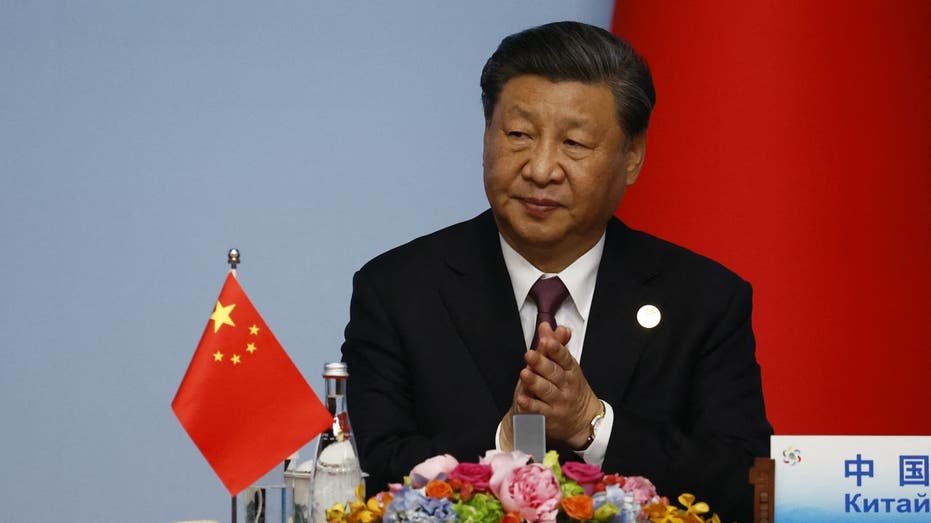Gatestone Institute senior fellow Gordon Chang weighs in on Secretary of State Antony Blinkens trip to Shanghai and the TikTok bill as the China threat grows.
Billions of investment dollars are going from U.S. financial markets to Chinese companies that have been blacklisted by the U.S. government over links to Chinese Communist Party’s (CCP) military modernization and human rights abuses, according to a new report.
The bipartisan House Select Committee on the Strategic Competition between the U.S. and the CCP released a report detailing how asset managers and index providers facilitated investment of more than $6.5 billion to 63 companies in the People’s Republic of China (PRC) that have been blacklisted or red-flagged by the U.S. government.
“These companies develop advanced fighter jets and nuclear weapons for the People’s Liberation Army (PLA) and create technology used to perpetrate the ongoing genocide against the Uyghur people,” the committee wrote. “What may surprise many Americans is that the activity by U.S. financial institutions described below is not illegal. It is time for Congress to act.”
“Through the products of our own financial industry, Americans’ hard-earned savings and retirement money are supporting the military modernization of a foreign adversary and the development of tools used by the CCP to violate human rights. Many investors have no idea,” the bipartisan panel warned.
TIKTOK’S FORCED SALE FROM CHINA WILL BE ‘MOST SIGNIFICANT’ NATIONAL SECURITY STEP, SAYS FCC COMMISSIONER
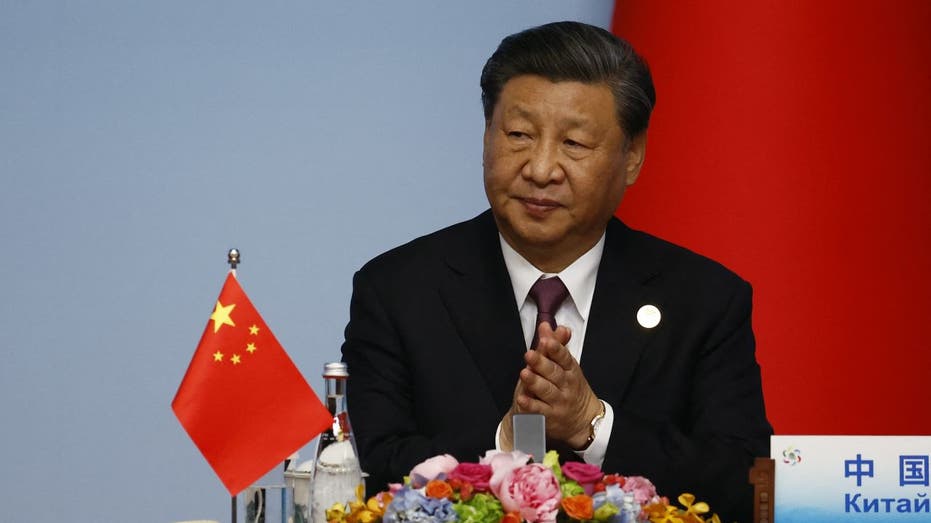
China’s Xi Jinping has overseen the modernization of the Chinese military and a crackdown on Uyghur minorities in Xinjiang. (Photo by FLORENCE LO/POOL/AFP via Getty Images / Getty Images)
Under current law, U.S. government agencies maintain a variety of blacklists and red-flag lists that serve a range of purposes, from barring exports to covered foreign firms and blocking imports due to connections with the use of forced labor, to restricting purchases of equipment that poses a national security risk and more.
Most of these lists do not restrict U.S. asset managers or investors from investing in listed companies. One list that does restrict U.S. investment in listed firms, the Treasury Department’s NS-CMIC list, blocks investment only in listed firms but excludes those companies’ subsidiaries, allowing them to receive U.S. capital.
Index providers like MSCI, the world’s leading index provider, have created indexes used by fund managers and other investors that seek to mirror financial markets like those in China. In that process, they have the option of excluding firms at their discretion, but may opt to include the broadest possible selection of companies in a given market or to rely on the most widely-used benchmark index.
CHINA ORDERS APPLE TO REMOVE WHATSAPP, THREADS, OTHER APPS IN CENSORSHIP MOVE: REPORT
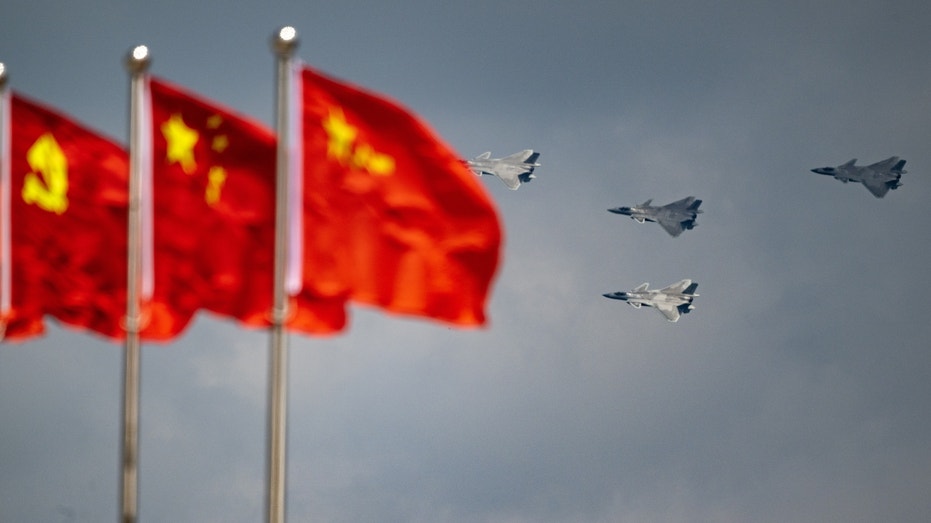
Chinese J-20 stealth fighter jets fly during an air show. ((Photo by VCG/VCG via Getty Images) / Getty Images)
Those indexes are then used by asset managers like BlackRock, Vanguard and others to create investment products like exchange-traded funds (ETFs) or mutual funds centered on that index.
For example, BlackRock, the world’s largest asset manager, offers the iShares MSCI China ETF (ticker MCHI), which mirrors the MSCI China Index that covers about 85% of Chinese equities. The committee found that the ETF had assets under management (AUM) of about $7.6 billion, of which about 3.01%, or $230 million, is in Chinese firms flagged by U.S. government agencies.
BlackRock’s iShares Core MSCI Emerging Markets ETF (ticker IEMG), which mirrors an MSCI index benchmarked to a number of emerging markets around the world including China, had about $70.9 billion in AUM – of which 0.78%, or $556 million, was in blacklisted or red-flagged Chinese firms per the committee’s analysis.
| Ticker | Security | Last | Change | Change % |
|---|---|---|---|---|
| MCHI | ISHARES TRUST MSCI CHINA ETF | 42.35 | +0.80 | +1.93% |
| IEMG | ISHARES INC CORE MSCI EMERGING MKTS ETF | 51.80 | +0.56 | +1.09% |
FORMER GOOGLE ENGINEER INDICTED FOR STEALING AI SECRETS TO AID CHINESE FIRMS
Of the $6.5 billion that the committee found invested in Chinese firms included on U.S. agencies’ red-flag lists, nearly 59% was invested through asset managers Vanguard and BlackRock, which each accounted for about $1.9 billion of the total.
“The existing regulations prohibiting investment in certain Chinese companies because of national security risks or human rights violations are insufficient,” the committee wrote. “Congress must act to restrict U.S. investment in entities tied, directly or indirectly, to the PLA, critical technology sectors, or forced labor and genocide.”
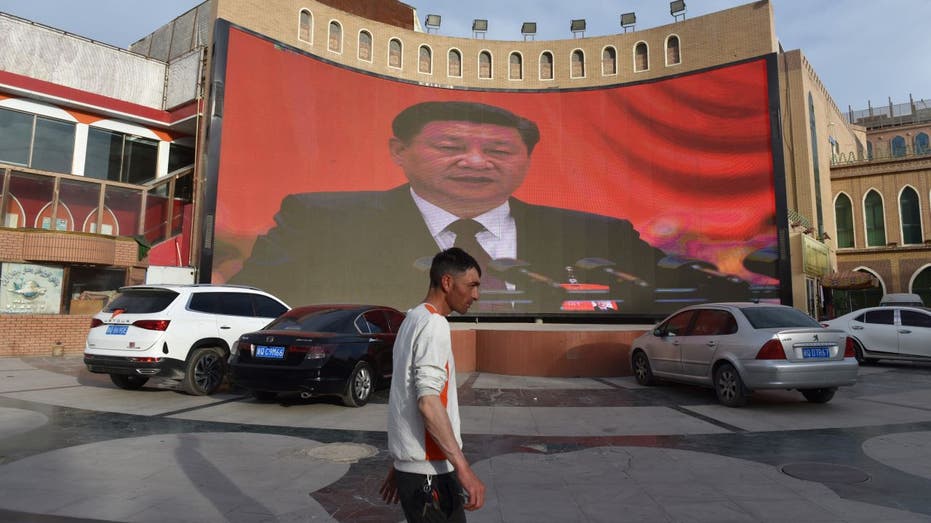
Chairman Xi Jinping appears on a screen in the city of Kashgar in China’s Xinjiang reigon. (Photo credit: GREG BAKER/AFP via Getty Images / Getty Images)
US VC FIRMS INVESTING BILLIONS IN CHINESE AI, MILITARY AND TECH FIRMS: CCP SELECT COMMITTEE
The committee recommended three policies for Congress to act on to address the shortcomings of U.S. restrictions on investment in certain Chinese companies, including:
- Restrict investment in companies blacklisted by the U.S. government, including subsidiaries, affiliates, parents and holding companies – including through the delisting of PRC companies covered by human rights sanctions or implicated in Uyghur forced labor.
- Require U.S. public companies to disclose key risks related to investments in PRC securities, including differences in shareholder rights.
- Ensure the U.S. financial system is resilient to PRC market uncertainty through increased disclosures to investors about risks associated with the PRC market.
“Short of such action, billions of dollars of Americans’ life savings will continue funding the PRC’s military and human rights abuses, including the Uyghur genocide,” the committee said.
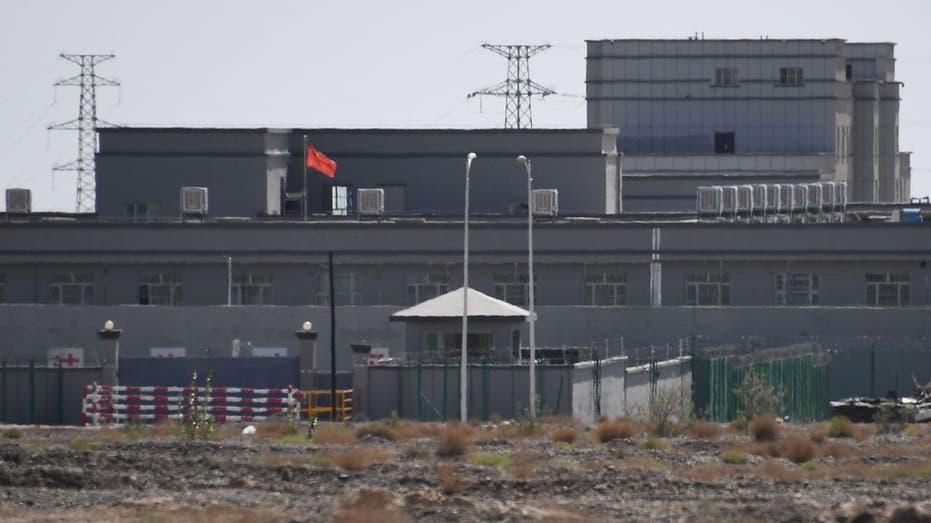
China has in recent years detained as many as 1 million Uyghurs and other ethnic minorities in re-education camps in recent years that the CCP calls “vocational education centers.” – June 2019 photo of a camp near Kashgar in China’s Xinjiang region. (Photo credit: GREG BAKER/AFP via Getty Images / Getty Images)
CCP SELECT COMMITTEE OFFERS POLICIES FOR US TO BEAT CHINA ON ECONOMIC FRONT
Financial firms respond
“The Committee and its report confirm BlackRock complies with applicable U.S. laws, this matter reflects the entire asset management industry, and that Congress and the Administration must work together to create clear rules of the road for U.S. investors,” BlackRock told FOX Business in a statement. “Despite fully cooperating with the Committee for more than eight months, its report includes misleading assertions about index funds, including that they are ‘funneling billions of dollars’ to these entities.”
“We are pleased that the Committee acknowledges that MSCI indexes comply with U.S. laws and regulations,” MSCI told FOX Business in a statement. “An index is simply a mathematical calculation of the performance of the market. An index does not, and cannot, channel investments, and MSCI does not manage or recommend investments in any country or company.”
“If Congress or other government bodies expand restrictions on investment in China as recommended by the Committee, MSCI will assess applicable changes to our indexes in accordance with our methodologies,” MSCI added.
GET FOX BUSINESS ON THE GO BY CLICKING HERE
“Vanguard maintains robust policies and procedures to ensure compliance with all applicable laws and regulations, including the rigorous sanctions laws maintained by the U.S. Treasury Department’s Office of Foreign Assets Control (OFAC),” Vanguard told FOX Business in a statement. “We stand ready to comply with any new regulations or compliance measures laid out by policymakers.”
“Vanguard invests on behalf of 50 million individual investors and retirement savers, offering a wide array of investment options that can help investors meet different goals and objectives, including a range of funds to invest internationally. Our clients’ investments in China are limited and primarily through U.S.-based passive index products that are designed to provide exposure to many diversified and developing economies around the globe,” the company added.
